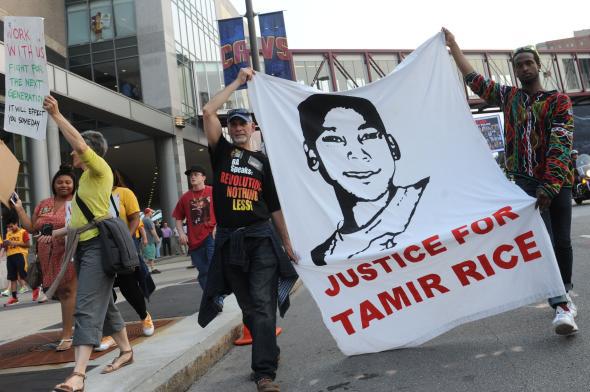On Tuesday, a group of Cleveland activists and civic figures took advantage of a little-known law and filed a direct request to a judge to approve the arrest of police officers Timothy Loehmann and Frank Garmback for their roles in the shooting death of 12-year-old Tamir Rice. (Loehmann fired the fatal shots.) On Thursday, Judge Ronald Adrine ruled—but only in an “advisory” capacity, without issuing an arrest warrant—that there is in fact “probable cause” to charge the two officers with a number of crimes. The judge was careful to state, however, that control of Loehmann and Garmback’s case still lies with the Cuyahoga County prosecutor’s office, which has said it plans to eventually present the case to a grand jury. From Adrine’s ruling:
Resort to this statutory process does not provide an “end around” either the City or the County Prosecutor. The statute provides this court the ability to review affadavits filed by private citizens for sufficiency and good faith … That statutory schema does not, however, provide the court the ability to require that its determination be substituted for the discretion either of the City or the County Prosecuting authorities.
“The trial court does not have the option of unilaterally issuing a warrant on its own initiative in these private citizen initiated cases,” Adrine wrote.
The activists’ request was an effort to expedite the process by which Loehmann and Garmback’s case is brought before a grand jury; a grand jury is the only body in Ohio that can issue felony indictments to bring suspects to trial. Despite Adrine’s acknowledgement of probable cause, for now it appears that the pace of the potential prosecution will remain under the control of the same authorities that had control all along.
Update, 5:50 p.m.: I’ve changed the word “arrest” to “charge” in the body and headline of this piece for clarity. Having enough evidence to charge someone also means there’s enough evidence to arrest them, so the previous wording wasn’t incorrect per se, but the judge’s ruling focuses specifically on the issue of charging.
